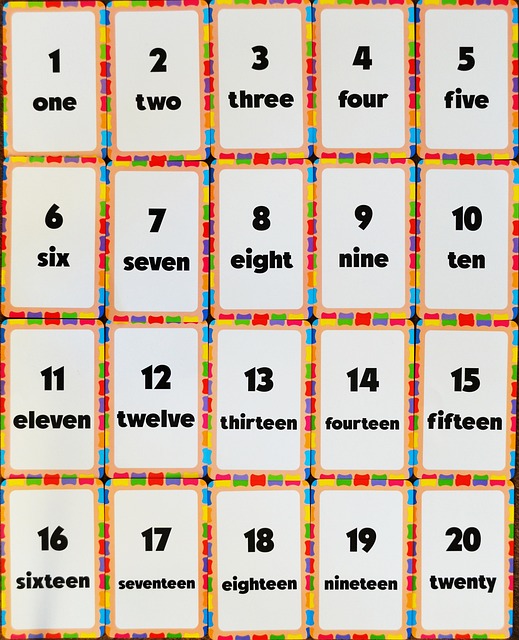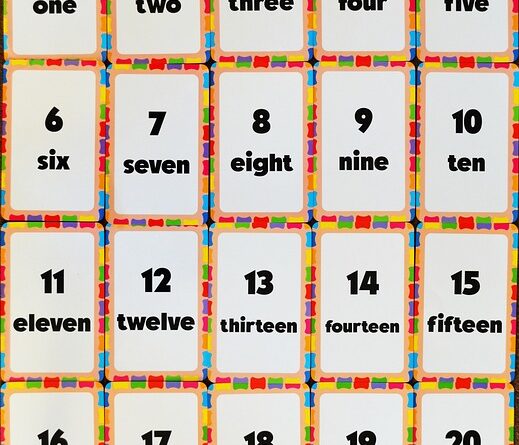
Have you ever found yourself stumbling over certain words and wondering if you’re pronouncing them correctly? Well, fear not because in this article, we’re going to help you master the art of pronunciation! Do you want to know the secrets to pronouncing words correctly? Keep reading, and we’ll guide you through it step by step.
Pronouncing words correctly can often be a challenge, especially when you come across those tongue-twisting terms. But guess what? With a little practice and a few helpful tips, you can become a pro at pronouncing even the trickiest words. In this article, we’ll explore different strategies to perfect your pronunciation, such as understanding phonetics, breaking down syllables, and practicing intonation. We’ll delve into the world of pronunciation and equip you with the tools you need to confidently pronounce words with ease. So, get ready to impress your friends and colleagues with your newfound linguistic skills! Stay tuned for more in-depth information in the upcoming paragraphs.

Table of Contents
How to Pronounce Words Correctly
Importance of Pronouncing Words Correctly
Pronunciation plays a crucial role in effective communication. Whether you are a native speaker or learning a foreign language, pronouncing words correctly is essential for conveying your message clearly. Mispronunciations can lead to confusion, misunderstandings, and even embarrassment in some situations. In this article, we will explore the importance of pronouncing words correctly, techniques to enhance your pronunciation skills, and tips for overcoming specific pronunciation challenges.
Impacts of Mispronunciation
Mispronouncing words can have various negative impacts on your communication. Firstly, mispronunciations can make it difficult for others to understand what you are saying. This can be especially problematic in professional or academic settings, where clarity and precision are crucial. Additionally, mispronunciations can undermine your credibility and confidence when speaking.
Enhancing Communication Skills
Improving your pronunciation skills can significantly enhance your overall communication abilities. By pronouncing words correctly, you can ensure that your intended message is conveyed accurately. This is particularly important when it comes to important discussions, presentations, or interviews where your words carry weight. Clear pronunciation can also help you establish rapport and connect with others, allowing for smoother interactions and better understanding.
Improving Language Fluency
One of the key components of language fluency is the ability to pronounce words accurately. Fluency not only involves understanding grammar and vocabulary but also encompasses the ability to speak smoothly and naturally. When you can pronounce words correctly, your language skills become more polished, allowing you to express yourself more confidently and fluidly. This, in turn, can boost your overall language fluency and make you a more effective communicator.
Understanding Phonetics
Introduction to Phonetics
Phonetics is the study of sounds in human speech. It focuses on the physical properties of sounds and how they are produced, transmitted, and perceived. By understanding the basic principles of phonetics, you can improve your pronunciation skills and develop a better grasp of the sounds in a language.
Phonetic Symbols and Sounds
Phonetic symbols are used to represent specific sounds in different languages. These symbols provide a visual representation of the sounds, making it easier to understand and reproduce them accurately. By familiarizing yourself with phonetic symbols and their corresponding sounds, you can train your ear to recognize and reproduce specific speech sounds.
The International Phonetic Alphabet (IPA)
The International Phonetic Alphabet (IPA) is a system of phonetic notation that represents the sounds of human language. It is widely used by linguists, language learners, and teachers to transcribe and analyze speech sounds. Learning the IPA can be immensely helpful in improving your pronunciation as it provides a standardized way to understand and represent the sounds of a language.
Common Pronunciation Mistakes
Vowel and Consonant Mispronunciations
Mispronouncing vowels and consonants is a common pronunciation error. Vowel sounds can vary significantly across languages, and it is important to familiarize yourself with the specific vowel sounds in the language you are learning. Consonant mispronunciations can also impact the intelligibility of your speech. Paying attention to the position of your tongue, lips, and vocal cords can help you produce the correct consonant sounds.
Word Stress and Intonation Errors
Word stress refers to the emphasis placed on certain syllables within a word. Incorrectly stressing syllables can alter the meaning of a word and result in miscommunication. Intonation, on the other hand, relates to the rising and falling pitch patterns in speech. Both word stress and intonation contribute to the rhythmic and melodic aspects of speech. Being aware of these aspects and practicing them can greatly improve your pronunciation.
Pronouncing Words with Silent Letters
Silent letters can pose a challenge when pronouncing words in some languages. It is important to recognize which letters are silent and adjust your pronunciation accordingly. Paying attention to phonetic transcriptions and practicing the pronunciation of words with silent letters can help you overcome this common pronunciation hurdle.
Techniques for Correct Pronunciation
Listening and Mimicking Native Speakers
One of the most effective ways to improve your pronunciation is by listening to and mimicking native speakers. Immerse yourself in the language you are learning by watching movies, listening to podcasts, or engaging in conversations with native speakers. Pay close attention to the pronunciation of words and phrases, and try to replicate the sounds as accurately as possible.
Using Pronunciation Resources
There are numerous pronunciation resources available that can assist you in improving your pronunciation skills. Online platforms, mobile applications, and language learning websites often offer pronunciation exercises, audio samples, and interactive tools to help you master specific sounds and words. Utilize these resources to practice and refine your pronunciation.
Practicing Pronunciation with Tongue Twisters
Tongue twisters are playful sentences or phrases that are known for their articulatory challenges. Reciting tongue twisters can help you improve your pronunciation by focusing on specific sounds or sound combinations. Regularly practicing tongue twisters can enhance your speech muscles and overall articulation, leading to improved pronunciation and clarity.

Regional and Dialect Variations
Accents and Dialects
Accents and dialects are variations of a language that are influenced by geographical, cultural, or social factors. It is important to recognize that different regions and communities may have distinct pronunciation patterns and variations. Exposure to various accents and dialects can broaden your understanding of the language and prepare you for different communication contexts.
Understanding Regional Pronunciation Differences
When learning a language, it is crucial to be aware of regional pronunciation differences. Certain sounds or speech patterns may differ across regions, and it is important to adapt your pronunciation accordingly. Pay attention to native speakers from different regions and try to incorporate the nuances of their pronunciation into your own speech.
Navigating Pronunciation Challenges
Pronunciation challenges may arise when encountering new words or sounds that are not present in your native language. It is important to approach these challenges with patience and perseverance. Practice regularly, seek guidance from language instructors or native speakers, and use pronunciation resources to overcome these difficulties.
Tips for Pronouncing Difficult Words
Breaking Down Complex Words
When faced with complex words, it can be helpful to break them down into smaller, manageable parts. Analyze the word syllable by syllable, paying attention to the individual sounds and stress patterns. By breaking down the word, you can better understand and reproduce its pronunciation accurately.
Identifying Pronunciation Patterns
Many languages have consistent pronunciation patterns that can be applied to multiple words. By identifying and studying these patterns, you can enhance your ability to pronounce unfamiliar words correctly. Look for recurring sounds or sound combinations and practice them in various contexts to reinforce your understanding.
Using Phonetic Transcriptions for Assistance
Phonetic transcriptions provide a visual representation of the sounds in a word using phonetic symbols. When confronted with a difficult word, referring to a phonetic transcription can give you valuable guidance on the correct pronunciation. By utilizing these transcriptions, you can train your ear to recognize and produce specific sounds accurately.

Improving Pronunciation in a Foreign Language
Learning the Sound System of the Language
To improve your pronunciation in a foreign language, it is crucial to familiarize yourself with the sound system of that language. Pay attention to the specific sounds, stress patterns, and intonation patterns. Practice listening to native speakers and imitating their pronunciation to internalize the language’s unique sound system.
Practicing Speaking with Native Speakers
Regular conversation practice with native speakers is invaluable for improving your pronunciation. Engage in meaningful conversations, ask for feedback, and actively listen to the pronunciation of your interlocutors. Conversing with native speakers provides real-life practice and allows you to fine-tune your pronunciation based on the feedback you receive.
Utilizing Language Learning Apps and Tools
Numerous language learning apps and tools are available that focus specifically on pronunciation. These tools often include interactive exercises, audio recordings, and pronunciation analysis, which can help you identify and correct pronunciation errors. Incorporate these apps and tools into your language learning routine to further develop your pronunciation skills.
Overcoming Specific Pronunciation Issues
Rhotic and Non-Rhotic Pronunciations
Rhotic and non-rhotic pronunciations refer to the pronunciation of the “r” sound in a language. Rhotic accents pronounce the “r” sound in all positions, while non-rhotic accents may drop or modify the “r” sound in certain contexts. Depending on the language you are learning, understanding and practicing these pronunciation variations can significantly enhance your ability to pronounce words accurately.
L and R Sound Differentiation
For many language learners, distinguishing between the “l” and “r” sounds can be challenging. These sounds may not exist or may be produced differently in their native language. Focusing on the position of the tongue, airflow, and vocal cord vibration can help you differentiate between these sounds and improve your pronunciation.
Mastering Difficult Consonant Clusters
Consonant clusters are sequences of consonant sounds that occur together in words. These clusters can pose a challenge when pronouncing words, especially if they are not present in your native language. Breaking down the clusters and practicing each consonant sound individually can help you master difficult consonant clusters and improve your pronunciation.

Building Confidence in Pronunciation
Positive Reinforcement and Self-Evaluation
Building confidence in pronunciation requires a positive mindset and self-evaluation. Celebrate your progress, no matter how small, and acknowledge your efforts to improve. Regularly evaluate your pronunciation by recording and listening to your own speech. Recognize areas for improvement and work on them systematically.
Seeking Feedback from Others
Feedback from others, especially native speakers or language instructors, is invaluable for improving your pronunciation. Request feedback on specific sounds, stress patterns, or words that you find challenging. Actively listen to the feedback and incorporate it into your practice routine to refine your pronunciation further.
Record and Listen to Your Own Pronunciation
Recording and listening to your own pronunciation can provide valuable insights into areas that need improvement. Use a voice recorder or language learning app to record yourself speaking. Listen to the recordings and compare them to native speakers or pronunciation resources. This self-assessment can help you identify and correct any pronunciation issues.
Conclusion
Pronouncing words correctly is vital for effective communication and language fluency. By understanding the importance of pronunciation, familiarizing yourself with phonetics, and practicing pronunciation techniques, you can significantly enhance your pronunciation skills. Remember to pay attention to regional and dialect variations, overcome specific pronunciation challenges, and seek feedback from others. With regular practice and dedication, you can improve your pronunciation, build confidence, and enhance your overall language skills.








